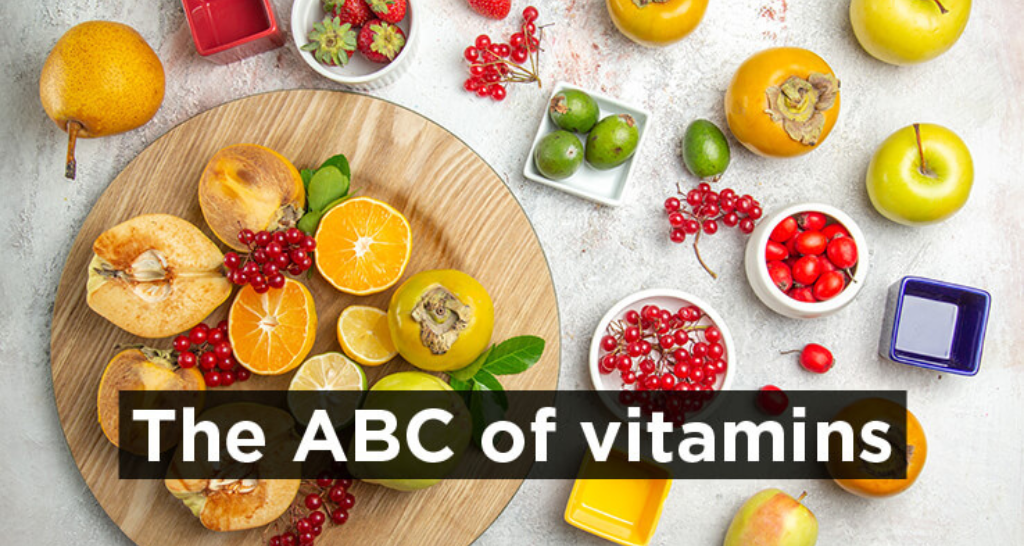We all know vitamins are vital to our health, but with so many types, how do we ensure we're getting the essential nutrients we need? In this comprehensive guide, we’ll explore the alphabet of vitamins, their unique roles in maintaining our health, and how we can incorporate them into our daily lives.
Introduction to Vital Vitamins
Vitamins are more than just items on a nutritional label; they are the keystones of our health, facilitating a myriad of bodily functions that keep us running like well-oiled machines. From bolstering our immune system to ensuring the health of our eyesight, these organic compounds are indispensable. But with such a vast array of vitamins available, where does one begin? Understanding the importance of each vitamin, as well as the foods that are rich in them, is the first step in optimizing our health.
Understanding the Importance of Vitamins in Your Diet
Vitamins are essential compounds that our bodies need in small quantities for optimal function. Each vitamin plays an intricate role—from aiding metabolic processes to antioxidant defense and cell regeneration. We usually get these mighty molecules from our diet, but sometimes, supplements are necessary to fill any gaps.
How Vitamins Support Overall Health and Wellness
A diet rich in vitamins can prevent chronic diseases, maintain energy levels, and enhance mood. By ensuring we consume the rainbow—fruits, vegetables, grains, and proteins—we supply our body with a spectrum of vitamins, thus safeguarding our health.
Breaking Down the Vitamin Spectrum
There’s a colorful array of vitamins, each with its own special role in our health. The spectrum ranges from the fat-soluble, which linger in the body’s fatty tissues, to the water-soluble, which are expelled quickly, necessitating a daily intake.
The Role of Antioxidants in Cellular Health
Vitamins with antioxidant properties, like vitamin C and E, protect our cells from oxidative stress, which if left unchecked, can lead to cellular damage and contribute to diseases like cancer and heart disease.
Vitamin A: The Vision Vitalizer
This vitamin is quintessential for vision as it maintains the health of the retina. Beyond sight, it also supports the immune system and is vital for reproductive health.
Nutritional Sources of Vitamin A
Rich sources include liver, fish oils, milk, eggs, and colorful fruits and vegetables like carrots, spinach, and apricots. These foods are not just carriers of vitamin A but are also a tapestry of complex nutrients working synergistically.
The Significance of Vitamin A for Eye Health
Vitamin A is critical in producing pigments that allow the eye to operate efficiently, especially in low-light conditions. A deficiency can lead to night blindness, a condition that is preventable with adequate intake.
The B-Complex: Energy and Metabolism Boosters
The B vitamins are a group of eight water-soluble vitamins that play significant roles in cell metabolism. They work as a team to convert our food into fuel, giving us energy throughout the day.
The Various B Vitamins and Their Unique Contributions
Each B vitamin—from B1 (thiamine) to B12 (cobalamin)—has a specific role, whether it's in energy production, DNA synthesis, or red blood cell formation. They are essential in the smooth operation of our metabolism.
Natural Food Sources Rich in B Vitamins
Whole grains, meats, legumes, nuts, and seeds are excellent sources of B vitamins. These nutrients are often found together in foods, which is why a varied diet is synonymous with a well-nourished body.
Vitamin C: The Immunity Warrior
Vitamin C is notorious for its immune-boosting properties. It's also an essential cofactor in the synthesis of collagen, which is vital for the structure of our skin, blood vessels, and bones.
Citrus and Beyond: Best Foods for Vitamin C
While citrus fruits are famous for their vitamin C content, there are numerous other sources, including strawberries, bell peppers, and Brussels sprouts, ensuring there are plenty of options for everyone.
The Impact of Vitamin C on Immune Function
Vitamin C stimulates the production and function of white blood cells, which are essential for fighting infections. It also acts as an antioxidant, protecting the immune system from damage by free radicals.
Vitamin D: The Sunshine Vitamin
Vitamin D is unique as it can be synthesized by our body when our skin is exposed to sunlight. It is fundamental for bone health as it aids in the absorption of calcium.
Sun Exposure and Vitamin D Synthesis
Moderate sun exposure is sufficient for most people to produce their vitamin D. However, factors like skin pigmentation, geography, and lifestyle can affect this natural synthesis.
Dietary Supplements vs. Natural Sources of Vitamin D
For those who can’t get enough sun exposure, dietary sources such as fatty fish, fortified milk, or supplements are necessary to maintain optimal levels of vitamin D.
Vitamin E: The Protective Nutrient
Vitamin E acts primarily as an antioxidant, safeguarding cell membranes from oxidative stress. It’s vital for immune function, skin health, and cell signaling.
Vitamin E-Rich Foods and Their Benefits
Nuts, seeds, and green leafy vegetables are rich in vitamin E, offering more than just the vitamin itself. They provide a package of nutrients that work in harmony to bolster overall health.
The Role of Vitamin E in Skin Health and Repair
As a fat-soluble antioxidant, vitamin E is integral in protecting skin from the damaging effects of free radicals and UV radiation. It also plays a role in the healing process of the skin, making it a popular ingredient in skincare products.
Vitamin K: The Clotting Factor and Bone Health Promoter
Vitamin K is essential for blood coagulation—without it, our bodies wouldn't be able to stop bleeding. But its role doesn't end there; it's also vital for bone metabolism.
Natural Sources of Vitamin K and Their Advantages
Leafy greens like kale and spinach are excellent sources of vitamin K, and they offer a bounty of other nutrients, including fiber, which supports a healthy digestive system.
Conclusion:
A recapitulation of the importance of understanding and incorporating the full spectrum of vitamins into one's diet for a healthier life.
This comprehensive outline sets the stage for a detailed exploration of each aspect of vitamin intake and its importance to our overall health and wellness.

 Fruits
Fruits
 Vegetable
Vegetable
 Bread
Bread
 Dryfruit
Dryfruit
 Dairy & Cheese
Dairy & Cheese
 Organic Food
Organic Food
 Frozen Non Veg Food
Frozen Non Veg Food
 Frozen Veg Food
Frozen Veg Food






